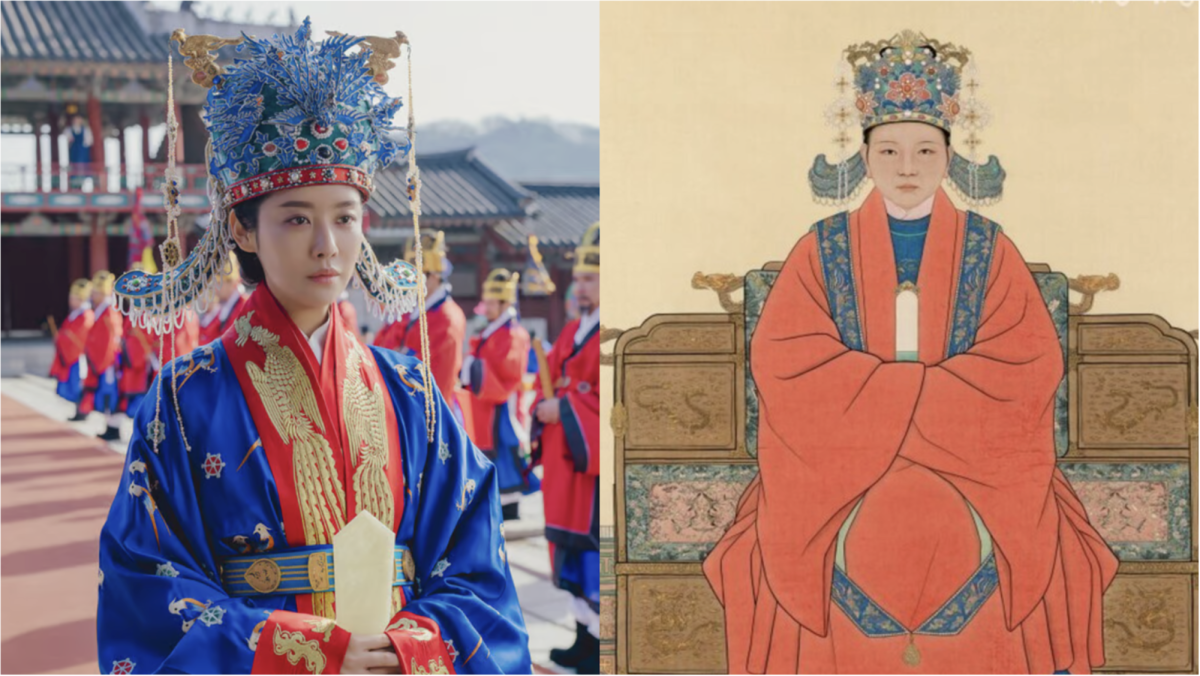“If I was a man, then I would be king,” Wongyeong said in “The Queen Who Crowns.”
In January, tvN launched “The Queen Who Crowns,” a historical TV series that centers around the tumultuous life of Queen Wongyeong of Joseon and her role as King Taejong’s consort during the Joseon period. The show aimed to portray the instability of Joseon’s early years through the lens of Wongyeong, whose fierce and determined nature that went against traditional Joseon values both helped establish royal authority but caused immense strain in her marital relationship.
The show first received attention after actress Cha Joo-young was cast as Queen Wongyeong. Many viewers were excited to see Cha, who starred in “The Glory” as the frivolous Choi Hye-jung, to see her as the lead.
The story begins in the late Goryeo period when Wongyeong’s witty, progressive mindset captivates a young government official named Yi Bangwon (Taejong) and they fall in love. Noticing Goryeo falling apart due to a series of impotent kings, Yi Bangwon’s family successfully overthrows the Goryeo dynasty and establishes Joseon, aspiring for reforms and a better society. During this process, Wongyeong greatly aids her husband in establishing Joseon and his wish to become king as he fights his brothers to win the throne in the Wars of the Princes. But when Bangwon becomes king, the couple struggles with their power dynamics: Bangwon wants Wongyeong to become a subservient wife, while Wongyeong wants equal power as a contributor to establishing Joseon.
Many viewers expressed satisfaction with the show’s non-traditional approach to storytelling. Although the story of the founding of Joseon or Taejong’s succession to the throne has frequently been used as the topic of Sa-geuks (Korean historical films), focusing on Queen Wongyeong’s role in the prompts was unprecedented. Unlike traditional Sa-geuks which emphasized the chronology of historical events, the series decided to focus on Wongyeong’s endeavor as queen and her relationship with Taejong.
“I wanted to show another dimension of the character besides his traditional image,” Lee Hyun-wook, actor playing Taejong, said. “Because history can be interpreted in different ways, I knew that [my portrayal] might make some uncomfortable.”
However, the series’s lack of focus on chronology brought about concerns about historical inaccuracy. Many criticized the show for portraying Taejong as having an inferiority complex to Wongyeong’s wit and demeanor, exacerbating their relationship. Furthermore, viewers have commented that the show tended to undermine Taejong’s regnal achievements to shed light on Wongyeong’s efforts as queen.
“On one hand, it’s easy to be dismissive [saying] it’s just entertainment,” James Kowalski, history teacher, said. “I don’t like the liberties that Hollywood writers take with historical events because, in many cases, it’s the only exposure that someone might have to particular events or topics and they just come away having an impression of a person is good or bad. [They will] have no idea of what sorts of information might be omitted from the narrative.”
Indeed, portrayals of historical figures in media leave strong impressions on audiences that are unfamiliar with the figure and the historical context. In some cases, students watch historical TV shows as a medium to familiarize themselves with the content they are learning in an enjoyable manner.
“It makes it a lot more interesting to watch shows where it relates to the class you’re taking,” Adelyn Yim (11), AP World History student, said. “It helps me understand the contents better especially if it is historically accurate.”
On the other hand, some expressed that producers should be able to have the liberty to alter historical plotlines, as a tv series does not require the accuracy of a documentary.
“I don’t think [historical series] necessarily always have to be perfectly historically accurate,” Tyler Castaño (12), History Honor Society vice president, said. “It’s one thing to make it a historical representation, but then you also still have to keep in mind that depending on the medium, at least part of it is supposed to be entertainment. I think as long as they’re upfront and transparent, [and it] isn’t completely historically accurate, I think that’s fine.”
Despite the show’s controversial historical narrative, it has nonetheless gained attention for its storyline and portrayal of scenes.


